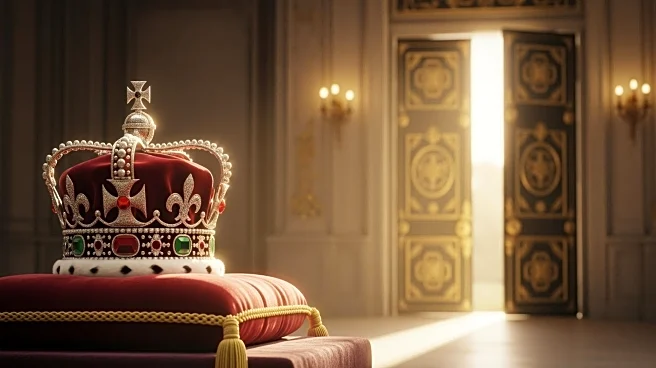What's Happening?
Buckingham Palace has denied reports that King Charles III plans to evict Prince Andrew from Royal Lodge, a 30-room mansion he has occupied for years. The denial comes amid speculation that Andrew, who
recently relinquished his Duke of York title, is under pressure to vacate the property due to his association with Jeffrey Epstein. Reports suggest that Andrew is in advanced talks to leave the residence voluntarily, despite having 50 years left on his pre-paid lease. If forced to move, he would need to be compensated legally. Friends of Andrew believe the monarch wants the property for Queen Camilla, should she outlive him.
Why It's Important?
The situation highlights ongoing tensions within the British royal family, particularly concerning Prince Andrew's controversial past. His association with Jeffrey Epstein has led to public outrage and scrutiny, affecting his standing within the monarchy. The potential eviction from Royal Lodge could further diminish Andrew's status and influence, impacting his personal and familial relationships. The royal family's handling of this issue is crucial in maintaining public trust and upholding the monarchy's reputation.
What's Next?
Negotiations between Prince Andrew and Buckingham Palace are expected to continue, with potential outcomes including voluntary relocation or legal compensation if eviction occurs. The royal family may face increased public scrutiny and pressure to address Andrew's situation transparently. Future developments could influence public perception of the monarchy and its ability to manage internal controversies effectively.
Beyond the Headlines
The ethical implications of Prince Andrew's association with Jeffrey Epstein continue to resonate, raising questions about accountability and moral standards within the royal family. The situation underscores the challenges of balancing personal relationships with public responsibilities, particularly in high-profile institutions like the monarchy.










